
Karoline von Schlotheim (6 July 1766 - 7 January 1847) was a German noblewoman who was the third and final mistress of William I, Elector of Hesse from 1788 until 1811.

Karoline von Schlotheim (6 July 1766 - 7 January 1847) was a German noblewoman who was the third and final mistress of William I, Elector of Hesse from 1788 until 1811.
Karoline was the daughter of General Heinrich Christian Wilhelm von Schlotheim and his wife, Friederike Most von Wilhelmsthal (d. 1799). In 1788, she was kidnapped against her will by William I, Elector of Hesse, who made her his mistress, replacing Rosa Dorothea Ritter. Karoline fled, but she was returned to the elector by her parents and later agreed to the relationship.
On 14 May 1788, William made Karoline Countess of Schlotheim, after which she used the salutation "high and well-born", and built the Löwenstein Castle for her in 1793. William treated Karoline like his consort, and she had considerable influence, including political influence, on him and the development of the country. [1] In 1807, she followed her de facto husband into exile and lived with him in Itzehoe, where she gave birth to their last child.
On 2 May 1811, Karoline received the title Countess of Hessenstein, which all her surviving children with the elector also received after their legitimization.
With William I, Elector of Hesse, Karoline had 13 children, only five of whom lived to adulthood:

Maximilian I Joseph was Duke of Zweibrücken from 1795 to 1799, prince-elector of Bavaria from 1799 to 1806, then King of Bavaria from 1806 to 1825. He was a member of the House of Palatinate-Birkenfeld-Zweibrücken, a branch of the House of Wittelsbach.

Louis II was Grand Duke of Hesse and by Rhine from 6 April 1830 until 16 June 1848. He was the son of Louis I, Grand Duke of Hesse, and Princess Louise of Hesse-Darmstadt.

Frederica Louisa of Hesse-Darmstadt was Queen of Prussia and Electress of Brandenburg as the second wife of King Frederick William II.

William I, Elector of Hesse was the eldest surviving son of Frederick II, Landgrave of Hesse-Kassel and Princess Mary of Great Britain, the daughter of George II.

Princess Wilhelmine of Baden, was by birth a Princess of Baden from the House of Zähringen and by marriage Grand Duchess consort of Hesse and by Rhine. Her descendants include King Charles III of the United Kingdom, King Felipe VI of Spain, and other members of European royalty.

Prince Frederick of Hesse-Kassel was a younger member of the ruling dynasty of the Landgraviate of Hesse-Kassel and a Danish general.

August Ludwig Freiherr von Senarclens-Grancy was the firstborn son of three sons and four daughters of César Auguste, Baron von Senarclens de Grancy, (1763-1836) and his wife, Élisabeth Claudine Marie-Rose de Loriol (1773-1846). Senarclens de Grancy is reputed to have been the long-time lover of Wilhelmine of Baden, the Grand Duchess consort of Hesse, and the actual father by her of Empress Maria Alexandrovna of Russia and Prince Alexander of Hesse.
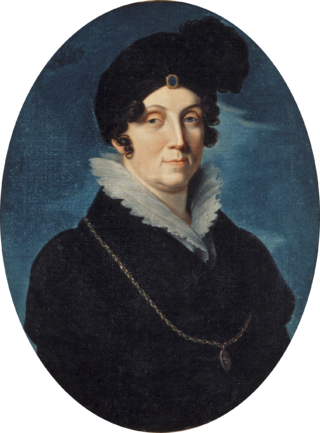
Princess Amalie of Hesse-Darmstadt was a Hereditary Princess of Baden by marriage to Charles Louis, Hereditary Prince of Baden. She was the daughter of Ludwig IX, Landgrave of Hesse-Darmstadt and Henriette Karoline of Palatine-Zweibrücken.
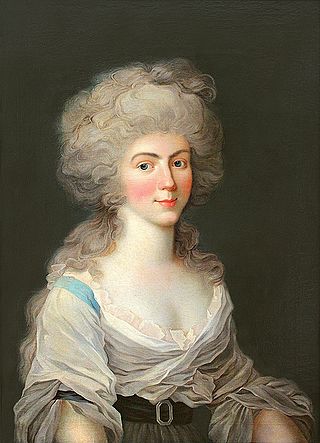
Princess Augusta Wilhelmina of Hesse-Darmstadt was Duchess consort of Zweibrücken by marriage to Maximilian, Duke of Zweibrücken and the mother of King Ludwig I of Bavaria.

William II was the penultimate Elector of Hesse.
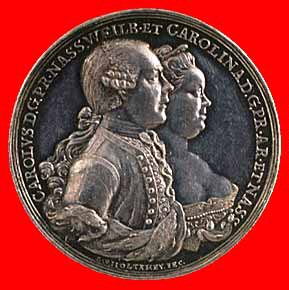
Charles Christian, Prince of Nassau-Weilburg, till 1753 Count of Nassau-Weilburg, was the first ruler of the Principality of Nassau-Weilburg between 1753 and 1788.
Countess Ferdinande Henriette of Stolberg-Gedern, born 2 October 1699 at Gedern, Oberhessen, Hesse-Darmstadt, then in the Holy Roman Empire, was a daughter of Louis Christian, Count of Stolberg-Gedern, and Duchess Christine of Mecklenburg-Güstrow. She died at König, Starkenburg, Hesse-Darmstadt, on 31 January 1750, at age 50.
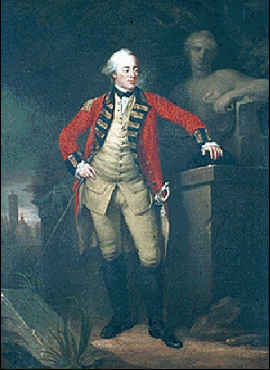
Johann Ludwig Reichsgraf von Wallmoden-Gimborn was a German lieutenant-general and art collector.
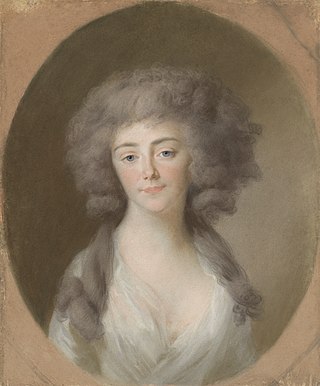
Louise Isabelle Alexandrine Augusta, Countess of Sayn-Hachenburg, Burgravine of Kirchberg, full German name: Luise Isabelle Alexandrine Auguste, Gräfin zu Sayn-Hachenburg, Burggräfin von Kirchberg was the Princess consort of Nassau-Weilburg through her marriage to Frederick William, Prince of Nassau-Weilburg.

Princess Caroline of Nassau-Usingen was the elder daughter of Karl Wilhelm, Prince of Nassau-Usingen, and wife of Landgrave Frederick of Hesse-Kassel.

Princess Maria Anna of Hesse-Homburg was a German noblewoman. She was the most senior woman at the Prussian court from 1810 to 1823. She was styled as "Princess Wilhelm of Prussia".

Princess Louise Henriette Karoline of Hesse-Darmstadt, was the first Grand Duchess of Hesse and by Rhine by marriage.

Friedrich August, Duke of Nassau, Prince of Nassau-Usingen was the last Prince of Nassau-Usingen and, jointly with his cousin, Friedrich Wilhelm of Nassau-Weilburg, first Duke of Nassau. He died without surviving male issue and was succeeded by his cousin's son, Wilhelm.
Rosa Dorothea Ritter, also called Rosette Ritter and Baroness of Lindenthal after 1783, was a German woman who was the second mistress of William I, Elector of Hesse from 1779 until 1788. She was an ancestor of the Barons of Haynau.

Princess Sophie Christine of Erbach-Erbach was the wife of William Henry, Prince of Nassau-Saarbrücken and was the mother of Louis, Prince of Nassau-Saarbrücken.